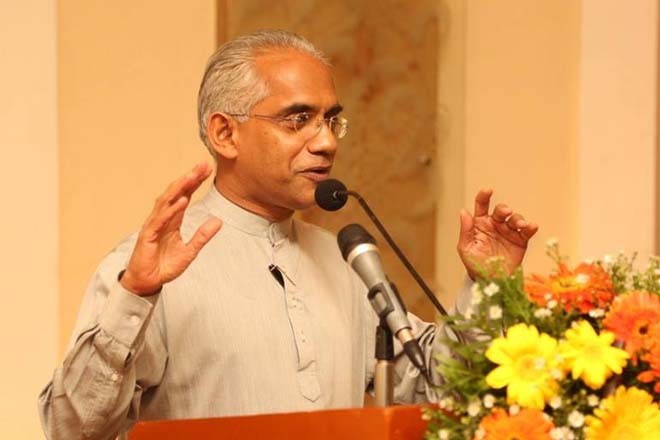Oppositions MP Eran Wikramaratne has alleged that there is a bizarre situation in the implementation of the agreement with the International Monetary Fund, as the tax burden on the poor and working people was imposed even before the implementation of the IMF conditions.
According to the report, the taxation of capitalists has been delayed until January 2025. The report states that the implementation of property, wealth and wealth transfer tax will be implemented from January 2025.
The main point of this agreement is to increase the state revenue. It should be decided from whom the income would be taken. This government takes the increased revenue from the poor and working people by crushing them.
The tax free threshold has been reduced to the limit of Rs one hundred thousand.
It is not a big salary. The government should understand that today there are strikes in the country because the poor and working people are being taxed beyond their limit.
Wickramaratne, Member of Parliament of the Samagi Jana Balawegaya,
who addressed the press conference held at the office of the opposition leader in Colombo Wednesday on the report submitted by the President to the Parliament on Wednesday regarding the IMF loan also said as following.
The MP said that when looking at the conditions followed by the International Monetary Fund in lending to Sri Lanka, questions arise not only about the government of Sri Lanka but also about the integrity and transparent policies of the IMF.
The first page of the report, which provides extended financial credit facilities to Sri Lanka, states that “The IMF’s transparency policy allows for the deletion of market-sensitive information and premature disclosure of the authorities’ policy intentions in published staff reports and other documents”
“I can understand as a former banker, that nobody should reveal market
information. But I do not agree with this clause which says they must not disclose the authorities’ policy intention. I think the IMF needs to look at its own transparency policy. Some of these global institutions talks to countries like SriLanka about transparency why not your policy intention what was the secrecy about your policy intention” retorted back Wickramaratne.
He further emphasized that the SJB does not agree with the non-transparent method of not disclosing the policies that should be promised to and followed with IMF.
There should be policy disclosure.
What has really happened through this agreement is that Sri Lanka, which is burdened with debt and bankrupted without ability to repay them, has just taken another loan.
The rulers and disciples have reached to the level of celebrating by lighting crackers when they took a loan from for survival. It was shown in the
media that crackers were being lit at the United National Party headquarters.
Some people are also eating milk rice. If the government does not properly understand the reality that the government which was unable to solve the country's problems, has taken this loan just to prolong the problem, the situation may worsen further.
According to these conditions, we are pressurized to somehow reduce our
expenses. The MP pointed out that an economics Professor analyzed this as
follows. A member of a family is an alcoholic. He continues to drink alcohol
without curtailing the habit or the cost.
However, as the cost has to be reduced, the family's three meals are reduced to two while allowing him to drink unabated. Such is a work that has happened in the country today.
The statistics shown by the government on the rationalization of expenditure also show such a thing. Mr. Wickramaratne warned that the poor and low income earners will be affected the most by the agreement with the IMF.
Therefore, the government should be careful in implementing this loan proposal, he said.
The same people who created economic and political instability in the country are coming forward ostensibly to solve this problem. Therefore, people should be careful about this.This is like asking the thief's mother for soothsaying.
The MP quoting clauses from the IMF report to cite the reasons as to how country was devastated after 2019 showed that “Despite progress made under the 2016-19 EFF program, Sri Lanka’s vulnerabilities were aggravated by substantial shocks during the period, including the 2017 drought, the 2018 political crisis, and the 2019 terrorist attacks. Income tax and value-added tax (VAT) were drastically cut in late 2019, with estimated revenue losses exceeding 2 percent of GDP.
The automatic fuel pricing mechanism was discontinued, and legislative reforms to enhance central bank autonomy and fiscal rules were suspended.

